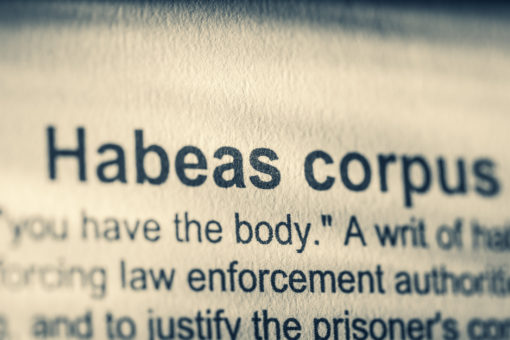
Writs of habeas corpus are typically utilized when someone believes they have been wrongfully detained or punished. Although these motions can be taken against states, the federal government is the more common target.
Choosing to work with a skilled federal criminal defense attorney is a wise move in either scenario. For a free legal consultation, call Chambers Law Firm at 714-760-4088.
The small chance of the habeas corpus petitions
The habeas corpus applications are extensive. All of these parties are accused of acting improperly in the papers: the trial judge, the defense attorney, the opposing prosecution, and law enforcement. The most common grounds for a habeas corpus petition are that the petitioner received insufficient legal counsel.
The habeas corpus process starts with a judge reviewing the petition, who has the authority to accept or reject it before setting a hearing date. While successful writs of habeas corpus may lead to the dismissal or reduction of a person’s sentence, getting through the review process is typically challenging, if not impossible.
Many different issues are typically covered in habeas corpus writs, such as:
Counsel’s assistance was below accepted standards. Certain claims surface when a trial attorney’s representation of a condemned person falls short of the proper standard of representation by counsel. Some of the most frequent examples of when an attorney’s care falls below the required standard include when he or she fails to conduct adequate research into the facts of a case, chooses not to call certain witnesses to testify, fails to present evidence of innocence, or provides incorrect legal advice.
Fraud on the jury’s part. It is plausible to assume that these cases involved jury misbehavior. Juror misconduct includes a variety of actions, such as exceeding the scope of the evidence admitted at trial, being excessively biased against the defendant, and discussing a case with someone who is not a member of the jury.
The convicted was incompetent to stand trial. A person cannot be found guilty of a crime if they are deemed incompetent at the time the case is heard. Incompetence can be influenced by physical impairments, mental health issues, and disabilities. The basis for a successful writ of habeas corpus will be established if a person can demonstrate that they were wrongfully convicted of a crime due to legal incompetence.
Prosecuting misconduct. These cases involve prosecutors who submitted false evidence or who withheld evidence during a prosecution.
Consult a seasoned criminal defense attorney
One of the first things you should do if you or a loved one has been convicted of a crime and wants to submit a writ of habeas corpus or another type of motion is to get in touch with a skilled criminal defense attorney. Call Chambers Law Firm at 714-760-4088 right away to schedule a free initial consultation.




